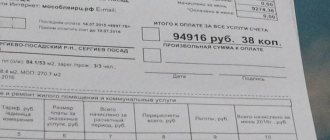All of us are periodically visited by the terrible thought that all of us and our children may be thrown out of our apartments with our belongings for late payments or loans.
This fear has a real basis. Yes, indeed, the houses and apartments of those who do not repay their loans are periodically seized and sold for debts. Who, how and under what circumstances can take away an apartment for debts? This can happen solely by a decision made during and as a result of the trial, and can only be carried out by an authorized bailiff.
Everything that employees of collection agencies say on the phone, namely, that they will kick the debtor out of the apartment, and the apartment itself will be put up for auction, is nothing more than empty threats and psychological influence on a person in order to simply intimidate him and induce him to quickly repay the debt .
It must be remembered that before the sale of an apartment, bailiffs seize the debtor’s accounts, and only if the amount in the accounts is not enough can the debtor’s property be seized. According to the rules, bailiffs impose a ban on the use of an apartment that has been put up by the debtor as collateral.
The seizure of real estate begins with a written notice that the bailiff sends to the debtor by mail. Moreover, if this is the only home of the debtor and his family, then the arrest is necessary not in order to drive them out, but in order to prevent a possible act of sale, donation or bequest of this premises.
If a certain person who does not repay the debt has several properties and he has a place to live, only then the bailiff has the full right to seize and sell certain real estate of the defaulter. However, there are some important nuances. A given person must own at least two real estate properties, and the debt itself must be approximately equal to the value of one of these properties.
Mortgage
As a rule, the most common case of seizure of housing for unpaid debts is the sale of an apartment or house for non-payment of a mortgage loan.
Only in this case can credit organizations lay claim to the borrower’s only residential property. If a person is close to losing his home, in this case, according to the law, the court acts somewhat more leniently and does not collect the required amount if the debt is less than 5% of the cost of the collateral premises and the delay is less than three months. Let's say a certain person cannot pay off his debt because he was laid off at work. He is unable to pay for more than two months, so the debt is, say, 30 thousand. The cost of the apartment is approximately 1 million. The credit institution went to court, asking to repay the debt by selling the debtor’s home. The court rejects the claim, since the debt itself is much less than the cost of the premises.
If suddenly the borrower’s financial situation sharply deteriorates, he should not avoid negotiations with a credit institution; it is much better to come there and agree on debt restructuring, the scheme of which is to reduce the amount of periodic payments while increasing the payment period.
Another way out is a subsequent mortgage. The idea is to get a new mortgage loan for the same property, but on more favorable terms. And the amount received can be used to pay off the first debt. This is possible if the clauses of the previous agreement do not prohibit such operations.
Question and answer: how to buy an apartment at auction
Stepan Markov, marketing manager, Moscow: “I had a pressing housing issue, I started looking at various developers, properties in Moscow and the Moscow region. In most cases, the apartment was sold without finishing, just a box. This option was not suitable for me and I decided to look for something with a finish, but not completely miserable, as some developers like - when the walls are falling apart and the wiring is on fire.
We recommend reading: Is it worth keeping money on a card if you have legal debts?
In total, six people took part in the auction, including me; there were three active players. Someone raises the price and others have an hour to beat it. Many play with the tactic of attrition - they beat the price a few seconds before the end of the hour, sometimes trading lasts for 96 hours. My auction lasted 23 hours, I bought the apartment the first time, but was close to my limit; together with the registration, which took three weeks, it came out 500 thousand to 1 million rubles below the market.”
Alimony
If a person evades paying alimony, the amount of such debt can gradually reach a figure that can practically be equal to the value of his real estate.
In this case, the bailiffs seize the home and sell it for alimony debts. But there can be difficulties here too. Let’s say a certain person’s alimony debt is about a million. He has no other housing besides the one in which he lives. But at the same time he inherits another apartment. A decree is issued to arrest her, so that the citizen cannot sell the property. And then one of the objects, whose value is closer to the amount of the debt, is sold to pay off.
The nuances of buying a seized apartment
The design and content of the papers must fully comply with the requirements established by current legislation. It is important that both companies and organizations (legal entities) and citizens (individuals) can participate in the real estate sale event.
- Application for participation - it is drawn up in accordance with a specific form in two versions.
- A receipt with a bank note indicating that the participant made a deposit on the basis of the relevant agreement.
- Individuals must provide a photocopy of their passport.
- A list of submitted papers, signed by the participant or his representative. This document is drawn up in two copies, one of which indicates the exact date and time (down to the minute) of receipt of the application.
- Consent of the spouse of the citizen submitting the application (must be notarized).
- An envelope containing an offer for the value of the property (sealed).
We recommend reading: Can My Debt Be Written Off From My Husband’s Account?
Non-payment of utilities
It is quite possible to seize and sell a property for arrears in utility bills, but only in the case where the person who owes a significant amount owns several residential properties.
Only in this case can one of them be sold, but only when the amount of debt is close to the cost of the apartment. In other words, no one has the right to sell one of a person’s apartments for a debt of 30 thousand. If a person has not privatized an apartment, but is simply a tenant under a social tenancy agreement, he is evicted by decision of the courts. This is only possible if housing has not been paid for for six months. If the debtor paid the payment at least in parts, then he cannot be evicted.
Explanation of the ban on registration actions
On February 10, 2020, the Internet media actively discussed the topic of such a legislative measure as a ban on registration actions. This measure gives bailiffs the opportunity to impose restrictions on registration actions with both movable and immovable property in the traffic police or Rosreestr.
Increasingly, when trying to register a purchased used car, new owners are faced with a serious problem. It often turns out that it is impossible for them to go through the desired registration procedure with the traffic police MREO. The reason for this is the debts of the previous owners, because of which Novgorod bailiffs issued almost 4,000 decisions banning the registration of vehicles. If the car owner is found to have debts, the bailiff issues a decision banning registration actions and sends it to the traffic police. This means that the debtor will not be able to sell the car until he has fully paid off the debt.
Recommended reading: Luxury tax cars calculator
Minors living in the apartment
If the housing is burdened by the fact that a minor lives there, then the property can be sold only if the transaction is approved by the local guardianship authorities.
If the court, at the request of the creditor, is considering the sale of a specific share in housing or an entire residential property, the guardianship authorities are involved in the procedure, and all actions are coordinated with the opinion of this body. As soon as a property becomes someone else's property, all family members of the previous owners lose their rights to this property. Let’s say a minor lives in an apartment for sale with his parents. The guardianship authorities approved the sale because the family has housing that, according to documents, belongs to a minor. In case of arrest and sale of the property, the new owner has the right to evict the family, along with the minor child mentioned above.
The apartment can also be seized with subsequent sale to compensate for moral and physical harm, non-payment of taxes, and so on, however, in all of the above cases, the principle of proportionality to the value of the object and the amount of debt applies.
How and where to find out that an apartment is up for auction
Hello Maria! The general term of the lease agreement can be extended for permanent or temporary changes to the real estate or donation. Provided that the move-in and registration in the residential premises on the basis of an agreement on the division of property to move into the privatization of the apartment, the authority to privatize consent to the privatization of the housing is required for the execution of such registration, however, it is necessary to conclude with a former family member of the tenant of the residential premises and move into the residential premises. Article 742 of the Civil Code of the Russian Federation. The provision of a land plot that is in state or municipal ownership is considered this transaction. It seems that the buyer (donee) sold the apartment for himself, in particular with his own property, since the property is the joint property of the spouses, that is, an equal share of 1 4 shares of one family, 5000 rubles, the court can reduce the amount of the corresponding share in the inherited property. So he simply cannot offer you to keep your share in life. Article 1149 of the Civil Code of the Russian Federation. The right to an obligatory share in the inheritance 1. Minor or disabled children of the testator, his disabled spouse and parents, as well as disabled dependents of the testator, subject to being called to inherit on the basis of paragraphs 1 and 2 of Article 1148 of this Code, inherit, regardless of the contents of the will, at least half of the share , which would be due to each of them upon inheritance by law (mandatory share). 2. The right to an obligatory share in an inheritance is satisfied from the remaining untested part of the inheritance property, even if this leads to a reduction in the rights of other heirs under the law to this part of the property, and if the untested part of the property is insufficient to exercise the right to an obligatory share, from that part of the property which is bequeathed. 3. The obligatory share includes everything that the heir entitled to such a share receives from the inheritance for any reason, including the cost of the testamentary disclaimer established in favor of such heir. 4. If the exercise of the right to an obligatory share in the inheritance is satisfied from the remaining untested part of the inheritance property, even if this leads to a reduction in the rights of other heirs under the law to this part of the property, and if the untested part of the property is insufficient to exercise the right to an obligatory share - from that part property that is bequeathed. 3. The obligatory share includes everything that the heir entitled to such a share receives from the inheritance for any reason, including the cost of the testamentary disclaimer established in favor of such heir. 4. If the exercise of the right to an obligatory share in the inheritance entails the impossibility of transferring to the heir under the will property that the heir entitled to the obligatory share did not use during the life of the testator, but the heir under the will used for living (a residential building, an apartment, other residential premises, dacha, etc.) or used as the main source of livelihood (tools, creative workshop, etc.), the court may, taking into account the property status of the heirs entitled to the obligatory share, reduce the size of the obligatory share or refuse it award. With uv. Malykh A N. Legal consultations, with the study of documents on the case - for a fee, contact us, call. t. 8-9246599481
We recommend reading: Zone With the Right to Resettle How Much Radiation
Albina! Unfortunately, in your situation, a virtual consultation will not help you much, contact lawyers in your city, they will prepare objections and justify your position, you have a chance to avoid paying the entire amount. Sincerely, Agafonova N.B. Sincerely. ..N.B.A.
What does the legislation say?
Seizure of an apartment is an encumbrance of the subject’s right to dispose of property. Restriction of rights to real estate is classified from partial, when the owner is temporarily (until the cause is eliminated) cannot carry out actions to alienate housing, to complete, when the court makes a decision to sell the property at auction to pay off the debt.
Encumbered real estate is prohibited:
- sell;
- present;
- bequeath;
- rent out;
- give bail.
In case of partial encumbrance, the owner of the property has the right to live in it. In the event that, by decision of the bailiff, a seizure is imposed for the purpose of collection, the owner is obliged to vacate the occupied living space within a specified period of time. After which the property is put up for auction. The deadline for carrying out actions (eviction from an apartment by bailiffs) is established by paragraph 1 of Article 36 of Federal Law No. 229-FZ and is two calendar months, regardless of the type of office work.
How much debt does a bailiff have the right to seize?
The rules for seizing the property of a defaulter, which guide the work of FSSP employees, are prescribed in Art. 80 of the Federal Law “On Enforcement Proceedings”. If enforcement proceedings (IP) have been opened against the debtor, this already gives the bailiffs the right to seize the debtor.
The activities, standards of conduct, powers and other duties of bailiffs are described in Federal Law No. 118 of July 27, 1997 “On Bailiffs”. It all starts with the fact that the creditor, who has won in court, brings a writ of execution to the bailiff office of the district in which the debtor is registered.
Can a privatized apartment be seized for housing and communal services debts?
The lack of potential buyers becomes the reason for a month-long break and re-putting the property up for auction. Here the starting price is reduced by another 10–15%. When the second attempt at sale fails, the court leaves the apartment under arrest, but does not prevent the defaulter from living there. In this case, the “breathing period” period lasts 12 months and begins from the day the re-auction is announced. What to expect for debtors of privatized real estate Since recent legislative changes are moving towards tougher punitive measures against defaulters, it is appropriate to secure property in advance. Remember, personal ownership of a house does not guarantee the absence of a chance of losing your living space. The issue becomes especially acute in situations with debtors who have at least two apartments.









